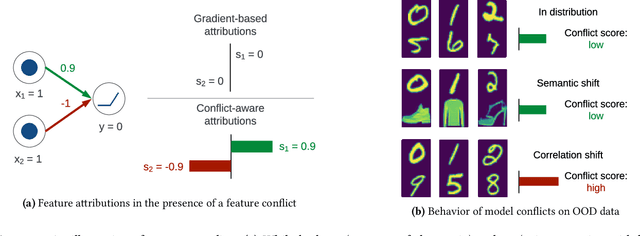CAFE: Conflict-Aware Feature-wise Explanations
Paper and Code
Oct 31, 2023



Feature attribution methods are widely used to explain neural models by determining the influence of individual input features on the models' outputs. We propose a novel feature attribution method, CAFE (Conflict-Aware Feature-wise Explanations), that addresses three limitations of the existing methods: their disregard for the impact of conflicting features, their lack of consideration for the influence of bias terms, and an overly high sensitivity to local variations in the underpinning activation functions. Unlike other methods, CAFE provides safeguards against overestimating the effects of neuron inputs and separately traces positive and negative influences of input features and biases, resulting in enhanced robustness and increased ability to surface feature conflicts. We show experimentally that CAFE is better able to identify conflicting features on synthetic tabular data and exhibits the best overall fidelity on several real-world tabular datasets, while being highly computationally efficient.
 Add to Chrome
Add to Chrome Add to Firefox
Add to Firefox Add to Edge
Add to Edge